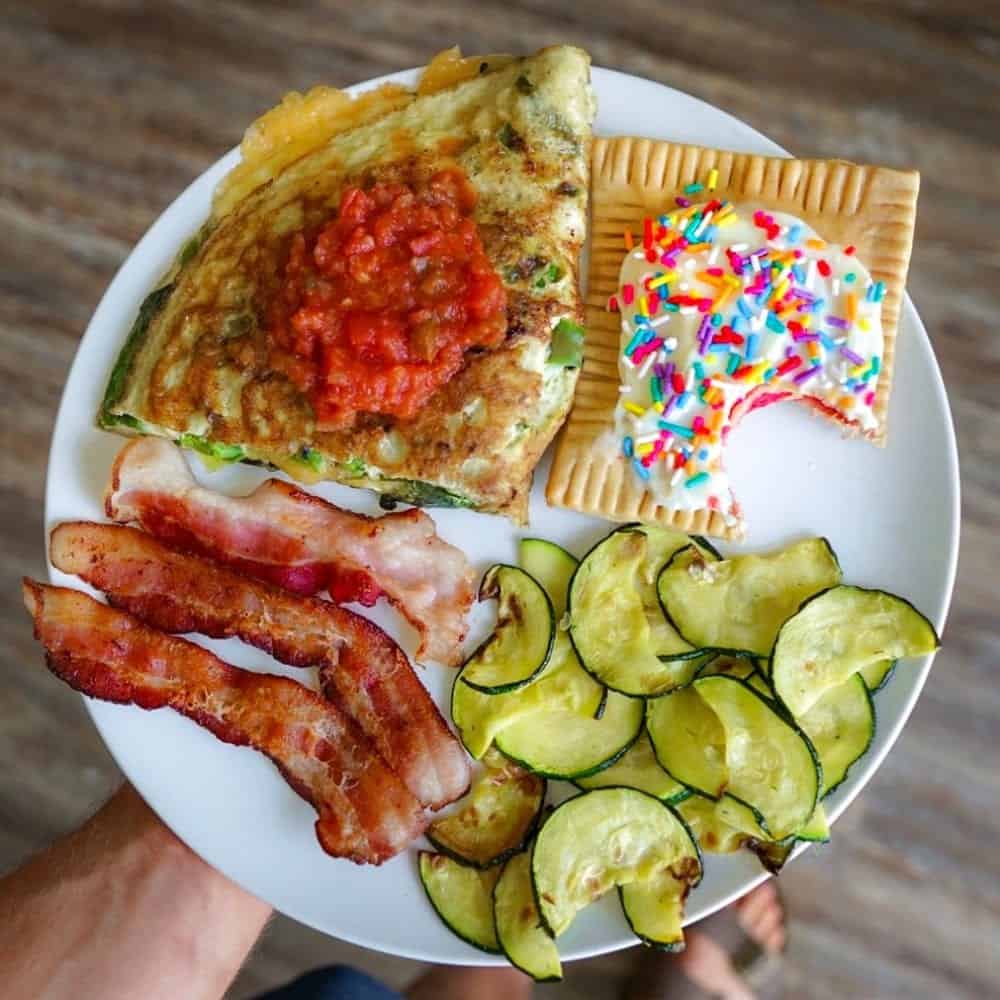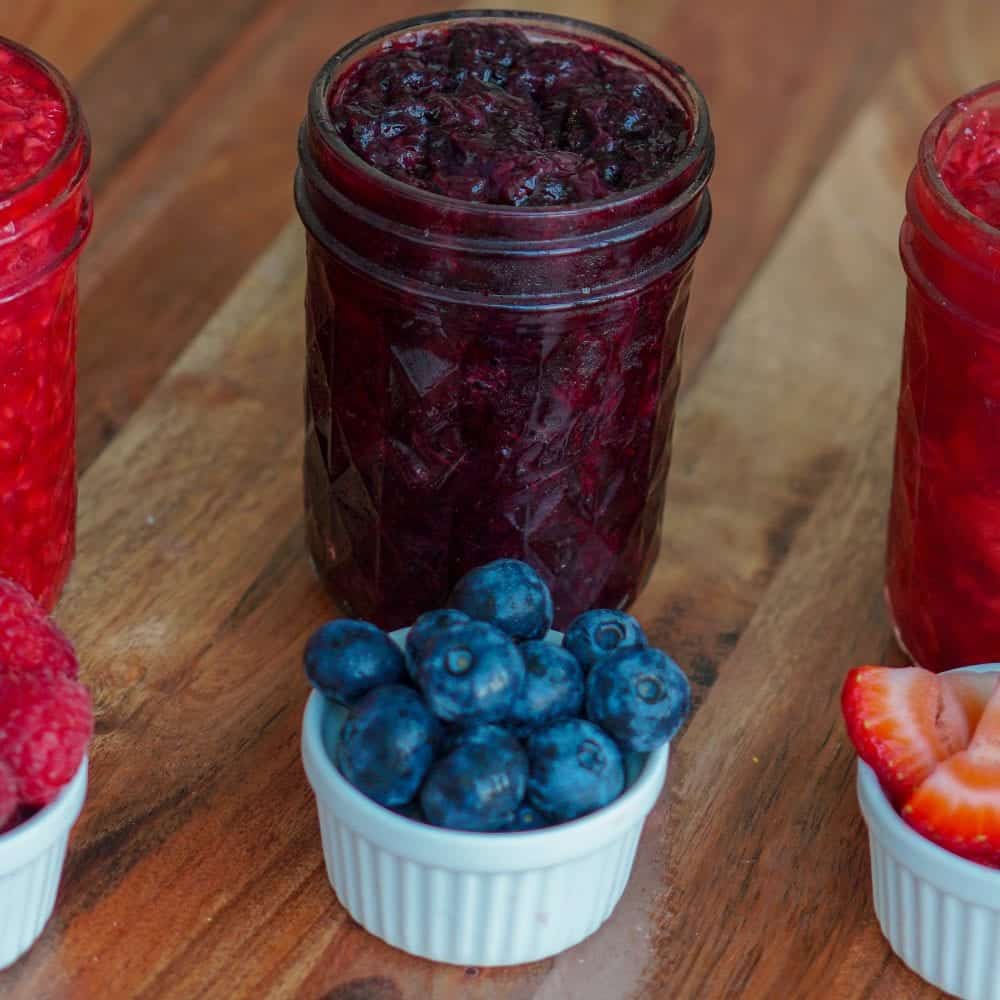Have you ever had those days where you were so busy or life was just so crazy that before you knew it, it was 5pm and you had yet to eat anything!?
You then proceeded to eat all of your macros from 5pm till you went to bed that night. It was pretty awesome right!? Straight feast!
Well by doing this, you inadvertently practiced a dietary strategy known as “Intermittent Fasting.”
And more than likely if you clicked on this guide, you have heard of Intermittent Fasting before and are looking to learn more on how to maximize it so you can reach your goals!
In this guide I will be covering:
- What is Intermittent Fasting?
- Popular Intermittent Fasting Protocols
- Why Your Muscle and Metabolism will be just fine
- Why Your Hunger is Lying to you
- What Really Matters Creating Your Intermittent Fasting Strategy
- My Full Day of Intermittent Fasting
- Early Morning Training
- Intermittent Fasting Done Wrong
1. Intermittent Fasting:
So what exactly does this mean!?
Simply put, Intermittent Fasting is an eating strategy, not a diet. You are simply timing your meals to where you are fasting for a certain period of time and then feasting for certain period of time.
We all do some type of intermittent fasting every single day. We eat in a certain window of time (usually the hours when we are awake) then fast while we sleep until we have our first meal the next day.
- So if you are eating your last meal at 8pm and not eating breakfast until 8am the next morning, then you are doing a 12 hour fast between meals! Bet you never really thought of this!
Our bodies are super duper smart and we tend to underestimate their abilities to adapt to the circumstances that we put on them.
To paint the picture, think of back when our ancestors, those beautiful cavemen and cavewomen, were roaming the fields looking for their next meal.
They only ate what they killed and did not have the luxury of going to a local supermarket when they needed food.

Our bodies operate differently during times of “fasting” and times of “feasting.” When “feasting” our bodies have a regular supply of food and do not need to rely on stored energy. When “fasting” our bodies do not have readily available energy sources so it has to mobilize energy stored in our bodies like glycogen and body fat.
2. Popular Intermittent Fasting Strategies
The Warrior Diet which is a 20 hour fast and a 4 hours eating window.
- So that would be fasting between 8pm-4pm the next day and then eating from 4pm-8pm
The Lean Gains approach is more a modest approach of a 16 hour fasting window followed by an 8 hour eating window.
- This would look like fasting from 8pm to 12pm the next day and eating from 12pm-8pm.

3. Fasting & Your Metabolism
I know you must be thinking, “But Zach, if I fast for 16-20 hours, what will happen to my metabolism! Shouldn’t I be eating every 2-3 hours in order to keep my metabolism going!? Gotta fuel the fire!”
The theory goes that if you eat small meals all day long, you are fueling your metabolism thus you will burn more calories that way! You “Bro Science Alarm” shouldn’t going off right now! Let go into why this metabolism humbo jumbo is just not the case.

Whether you eat 2500 calories spread throughout the day or 2500 calories in a small eating window, your body will burn the same amount of calories processing that food. This is called the Thermic Effect of Food (TEF).
When we ingest a certain amount of calories, our bodies will burn about 10% of the size of the meal in calories digesting it.
- So if I eat a meal that is 500 calories, then my body will burn 50 calories processing that meal.
- And if I eat a meal that is 2000 calories, my body will burn 200 calories digesting that meal.
- So if I eat 4 individual meals of 500 calories each, I will burn 50 calories each meal. So that is 50 x 4 = 200 calories of TEF
- So your TEF is the same for the four smalls meals as it would be for the one huge meal of 2000 calories!
4. But What About My Muscle!?!?
Am I going to lose all my hard earned gainzzzz!?
The short answer is absolutely not!
For 99% of the population who is just looking to lean up, look great naked, and lead a healthy life, then this passage is something you really don’t need to stress over!
For the 1% who are looking to compete at the high levels and want to maximize every single facet of putting on muscle mass, then this is something you’ll want to take into account.
Dr. Layne Norton and his lab have found that in order to optimize something called Muscle Protein Synthesis (simply the removing of damaged proteins and building of new ones stronger than the ones before), we need to be consuming protein more than just one time a day.
So spreading your protein intake out for 3-4 different feeding throughout the day would be best for maximizing this muscle protein synthesis. Not going to cover this too much but look at the example of my day later in the post to get an idea of how I navigate this.
5. Hunger Signals
Won’t I be starving while fasting!?
I know for some of you, fasting seems impossible because you wake up every morning with this crazy hunger that you think will kill you if you don’t eat something! Lol.

Well let me tell you that this is something that is more related to what you body is used to rather than you actually being hungry.
- So for example, if you are eating 6 meals per day started at 8am and eating every 2-3 hours, your body will naturally out of habit, become accusomted to this eating pattern and your hunger will coincide with that.
- But if you are used to skipping breakfast and eating 2-3 larger meals in a smaller eating window, then your bodies hunger will fall in line with that as well.
- So if you are someone who thinks you need to eat breakfast because you are soo unbelievably hungry, know that this is more because of your bodies hunger habits rather than you being actually hungry.
I used to struggle with this but I use a few strategies to help with this morning hunger:
- Drinking a 20oz glass of room temperature water immediately upon waking up in the morning.
- Drinking another 20oz of water combined with 10g of BCAAs (go into more detail on BCAAs in supplement post linked) to help curb that hunger.
- Then having my coffee which has caffeine which acts as a appetite suppressor.
- Staying busy and keeping my mind off food!
My mornings are my most busy times of the day as you will see later in the post when I walk you through my IF protocol.
But if you are a breakfast person, then by all means, you SHOULD eat breakfast! Or if you find that you are really busy in the mornings, you could push your first meal back.
And don’t feel like you can’t have breakfast foods at any time of the day!
I enjoy the low-calorie, macro-friendly oatmeal, donuts, french toast, pancakes whenever I’m craving them!
6. What Really Matters
After reading everything I’ve covered so far, I want to remind you of the two factors that are most important in regards to body weight and body composition.
1. Calories In vs. Calories Out
- Determine whether you lose or gain weight If you eat more than you burn then you will gain weight If you eat less than what you burn then you will lose weight
2. Macronutrient Ratios
- Are what determine our body composition? If we hit our macros for the day, then we hit our calories for the day. Our most important goal is to hit your macronutrient goals for the day.
Never forget that these are the most important factors and Intermittent Fasting is a strategy to help you hit those goals for the day.
I do not want you to think of one fasting schedule being better than another.
It doesn’t matter if you are doing a 12 hour fast or a 16 hour fast. What truly matters is what you can do in the long term. And that means a intermittent fasting protocol that fits your lifestyle so you can consistently hit your macros and your training hard while living the life you desire!
7. Creating Your Intermittent Fasting Strategy!
Is Intermittent Fasting right for you?
Well you should know the answer to this question is yes in all cases!
Why is that!? Because as I outlined earlier in the post that we all do some form of intermittent fasting every single day!
Things to ask yourself when figuring out your “Fasting” and “Feasting” time frames:
- What would fit my lifestyle the best?
- Do I like big meals or small meals?
- Am I trying to lose or gain weight?
If you are trying to gain weight, I would advise to not fast as long because it will become much more difficult to get it enough calories in throughout the day to support that weight gain. Not saying you cannot make it happen!
Best way to start is just by skipping breakfast and having you first meal at lunchtime!
8. My Intermittent Fasting Strategy
I figured the easiest way to show you how I use intermittent fasting in my day to day is just to take you through a Full Day of Eating.
Hopefully you find this helpful and get ideas for a bunch of the low-calorie high protein recipes that I’ve included!
9. If It Fits Your Lifestyle
Remember our goal with all this information is to mold nutrition to where it helps up live the lifestyle we desire.
As you can see, my nutrition complements my lifestyle. I use my nutrition as a tool to live the lifestyle I want to live rather than other way around.
This is applicable to doctors, construction workers, hair stylists, athletes, stay at home moms, college students, and literally everyone in the world!
The best diet is the one you can stick to so by figuring out an intermittent fasting protocol that fits your life perfectly, it will help support you reaching and keeping the results you desire!
10. Intermittent Fasting Done Wrong
One thing I see a lot now is utilizing Intermittent Fasting in a way that allows someone to have a full out binge.
For example, there are strategies where someone fasts for 22-23 hours and then eats all their calories in a 1-2 hour window. This more time than not is just a glorified binge.
I’m not saying this is a terrible approach but most times this is just to facilitate a binging habit.
I am not one to promote or support disordered eating so I just wanted to point that out because it is very prevalent in the IF community.
Yes it’s ok every once in a while to do this but do not make a habit of it because you most definitely run the risk of developing a disordered eating pattern or negative relationship with food.
What you learned today Intermittent Fasting is not a diet but is simply a “feasting/fasting” strategy. Your metabolism will not slow down from infrequent feedings.
Hunger is more from habits rather than actual hunger. Hitting your macro goals for the day is the most important factor.
By molding your intermittent fasting approach around your lifestyle, you can consistently hit your macros thus causing long term/lasting results.
What is your Intermittent Fasting Strategy!? Let me know in the comments below what you IF strategy currently is and/or what it will be in the future! Also, please share this post with anyone you know needs to start using IF to help them reach their goals!
And “IF” (get it, haha) you need help staying with your macro and caloric goals, please check out some of my world-class recipes!
Did you know you can get even more coaching on nutrition principles like the ones covered here?
Apply for The Flexible Dieting University Today!




